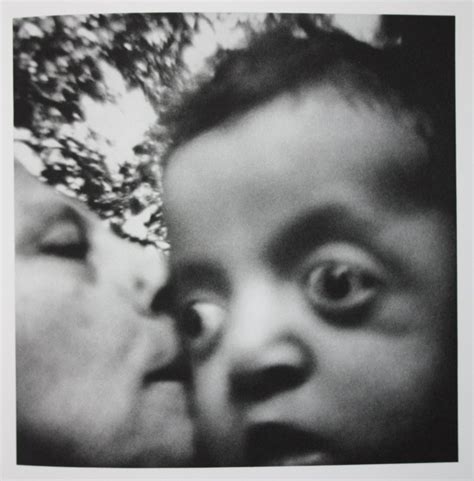A Quote by David Berman
It would be wrong of me to suppose that just because I can form private mental images, that everyone can. As Francis Galton and William James long ago showed, a small proportion of adults-and some of these extremely intelligent-are unable to form such visual images. Berkeley's point is that it would be equally arrogant for these non-thinkers or non-image formers to claim that everyone is like them in the relevant respect. The temptation to pontificate in that way reveals a narrowness and unwillingness to see the world from another perspective.
Quote Topics
Adults
Another
Arrogant
Because
Because I Can
Berkeley
Claim
Equally
Everyone
Extremely
Form
Francis
Image
Images
Intelligent
James
Just
Just Be
Just Because
Like
Long
Long Ago
Me
Mental
Mental Image
Perspective
Point
Pontificate
Private
Proportion
Relevant
Respect
Reveals
See
Small
Some
Suppose
Temptation
Them
Thinkers
Unable
Visual
Visual Image
Visual Images
Way
William
World
Would
Would Be
Wrong
Related Quotes
Some people say they use images to help them remember intricacies. Others say they just remember. If they are able to form an image of the face, it is because they remember how it was: it is not that an image guides memory, but that memory produces an image, or the sense of imaging. We have no agreed way to talk clearly about such things.
My being subsists only from a supreme point of view which is precisely incompatible with my point of view. The perspective in which I fade away for my eyes restores me as a complete image for the unreal eye to which I deny all images. A complete image with reference to a world devoid of image which imagines me in the absence of any imaginable figure. The being of a nonbeing of which I am the infinitely small negation which it instigates as its profound harmony. In the night shall I become the universe?
Another form of prayer, called cataphatic, honors and reverences images and feelings and goes through them to God. This form of prayer also has an ancient and well-attested history in the world of religions. Any sort of prayer that highlights the mediation of creation can be called cataphatic. So, praying before icons or images of saints; the mediation of sacraments and sacramentals; prayer out in creation - all these are cataphatic forms of prayer
Others of them employ outward marks ... They style themselves Gnostics. They also possess images, some of them painted and others formed from different kinds of material. They maintain that a likeness of Christ was made by Pilate at that time when Jesus lived among them. They crown these images, and set them up along with the images of the philosophers of the world, such as Pythagoras, Plato, and Aristotle, and the rest. They have also other modes of honoring these images just like the Gentiles.
Animals see a video of the world. If an animal were only to see still images, how would its vision develop? Neuroscientists have run experiments in cats in a dark environment with a strobe so it can only see still images - and those cats' visual systems actually underdevelop. So motion is important, but what is the algorithm?
It is my mind, with its store of images, that gives the world color and sound; and that supremely real and rational certainty which I can "experience" is, in its most simple form, an exceedingly complicated structure of mental images. Thus there is, in a certain sense, nothing that is directly experienced except the mind itself. Everything is mediated through the mind, translated, filtered, allegorized, twisted, even falsified by it. We are . . . enveloped in a cloud of changing and endlessly shifting images.
Unfortunately it's hard for me to be a fanboy for anything these days just because I see so much music. And it's not a namedropping thing, but there's just not that many people in this certain small little genre world we live in that I don't know or am not acquainted with. And I like them all; I get along with pretty much everyone. It wouldn't be unusual to see a thousand collaborations at some point.




































